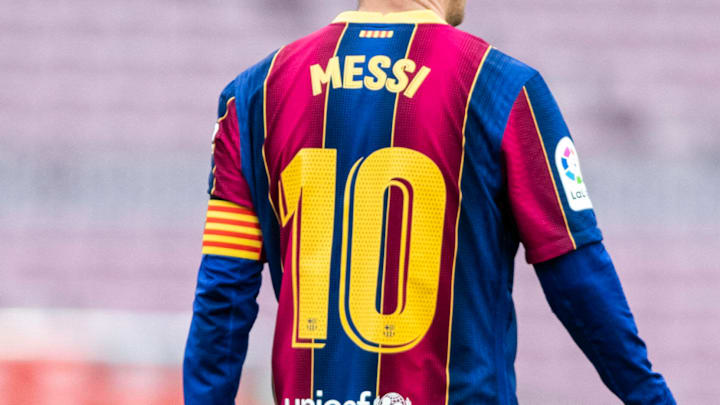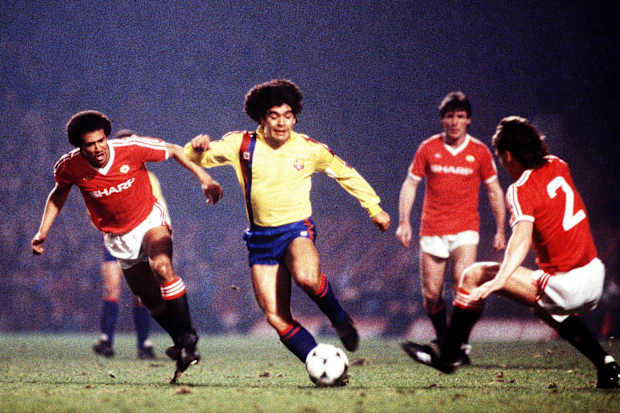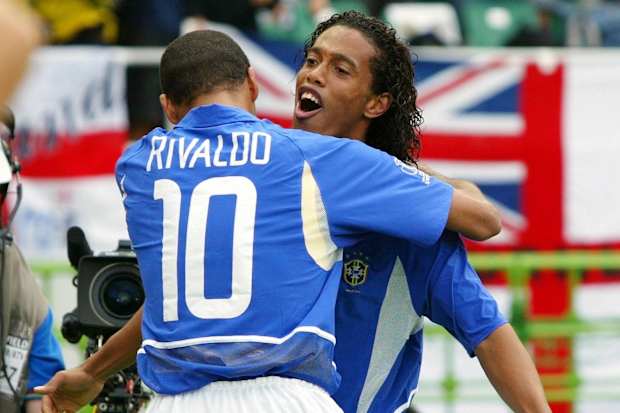Lamine Yamal Inherits Barcelona's Legendary No. 10 Jersey, Following in Footsteps of Club Icons

Few jerseys carry more legendary status than Barcelona's No. 10, largely due to the remarkable roster of legends who have worn this prestigious number in Catalonia.
The former bearers form what resembles a legendary hall of fame, though some have found it challenging to handle such immense pressure.
The latest holder, Ansu Fati, appeared poised to join the ranks of those legendary predecessors when Barcelona entrusted him with the monumental task of following the incomparable Lionel Messi as Barça's No. 10. Unfortunately, persistent injuries ruthlessly derailed Fati from realizing the exceptional potential he displayed early in his professional journey, and a fresh start awaits the 22-year-old in Ligue 1 with Monaco.
Thankfully, Barcelona didn't need to search long for their next generational phenomenon to surface, as Lamine Yamal's extraordinary talent ensured that Fati's unfortunate decline never cast a shadow over the club.
If you follow Yamal's social media presence, you likely have some insight into Barça's legacy with their No. 10 jersey. Nevertheless, Yamal, quite reasonably, didn't explore its origins back to Henry Morris's era in the early 1900s.
Transfermarkt peculiarly identifies Morris, characterized as an "Anglo-Filipino football pioneer," as Barcelona's inaugural No. 10 during the 1901–02 campaign—merely years following the club's establishment. Nevertheless, the earliest documentation of numbered uniforms doesn't appear until 1911. Therefore, it's probable that another Filipino, Paulino Alcántara, was Barcelona's original wearer of the club's No. 10 jersey. The compact striker is acknowledged as one of Barça's all-time greatest players, netting 395 goals across 399 appearances during two remarkably successful periods.
Alcántara proved to be an appropriate pioneer, though he likely wasn't expected to wear the number consistently. Squad numbering wasn't implemented in Spanish football until 1947, making Hungarian sensation László Kubala the first genuine legend to sport the shirt regularly.
Kubala might be less celebrated than other magnificent compatriots of his era, including Ferenc Puskás and Sándor Kocsis, yet he deserves recognition as one of his generation's most exceptional talents. He found the net 281 times for the club, and during his later years, partnered with 1960 Ballon d'Or champion Luis Suárez and Evaristo to rule Spain in the late 50s. Both mentioned players also donned the celebrated jersey.
A significant drought followed Kubala's departure in 1961. Throughout the subsequent 22 years, 18 different Barcelona No. 10s emerged, but most couldn't reach the elevated status the shirt had previously granted legendary figures. The most prominent wearer during these barren years was Juan Manuel Asensi, a playmaking midfielder who dedicated a decade to the club and accumulated nearly 300 league matches. Asensi also earned 41 international caps for Spain.

Then Diego Maradona arrived. The then-record signing was already famous for those two digits adorning his jersey, but his relatively short tenure with the club featured both brilliance and controversy. His greatest achievements were reserved for Naples and his national squad.
Steve Archibald became the inaugural British Barça No. 10 in 1984, and the Scottish player experienced remarkable success during his first campaign as the Blaugrana secured their initial La Liga championship in 11 years. However, Archibald's impact slowly diminished, and he departed after four seasons.
Defensive midfielder Pep Guardiola temporarily experimented with the jersey in 1991–92, before the 90s legends took their turns. Johan Cruyff's 'Dream Team' boasted superstars despite foreign player restrictions, and the club managed to satisfy the ambitions of Romário, Hristo Stoichkov and Gheorge Hagi by granting each brief periods as No. 10.
The century concluded with Jari Litmanen wearing the shirt after Giovanni had become the longest holder since Archibald. The exceptionally gifted Litmanen struggled to adapt at Barcelona, though, and the jersey was transferred to Rivaldo, who truly honored its legacy.

The Brazilian outlasted Louis van Gaal, who preferred utilizing him in wide positions, and Rivaldo's transition from No. 11 to 10 represented a change in importance. He became the focal point in Catalonia, and his inaugural season wearing No. 10 was arguably his finest with the club. Rivaldo netted 36 times across all competitions and provided ten assists in La Liga. His final-day hat-trick against Valencia remains one of Spanish football's most memorable, as the three goals, including an 88th-minute bicycle kick, propelled Barcelona into the Champions League.
Juan Román Riquelme appeared an ideal replacement when Rivaldo departed in 2002, but the Argentine was simply maintaining the jersey for another Brazilian maestro, Ronaldinho. The unique Brazilian creator literally embodied Barcelona for several years, and arguably the greatest No. 10 in the club's history until, after five seasons, they separated and 'Dinho's legendary shirt was passed to an emerging Lionel Messi.
Is there anything more to add? It's reasonable to say Fati couldn't properly succeed the GOAT's dominant career while displaying '10' on his back at Camp Nou. Who possibly could?
Barcelona Number 10 Shirt History: 21st Century
Player | Position | Years |
|---|---|---|
Jari Litmanen | Attacking Midfielder | 1999–2000 |
Rivaldo | Forward | 2000–2002 |
Juan Román Riquelme | Attacking Midfielder | 2002–2003 |
Ronaldinho | Winger | 2003–2008 |
Lionel Messi | Forward | 2008–2021 |
Ansu Fati | Winger | 2021–2025 |
